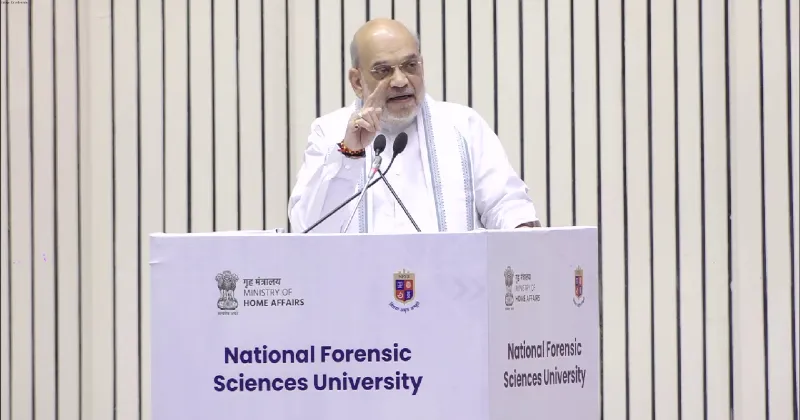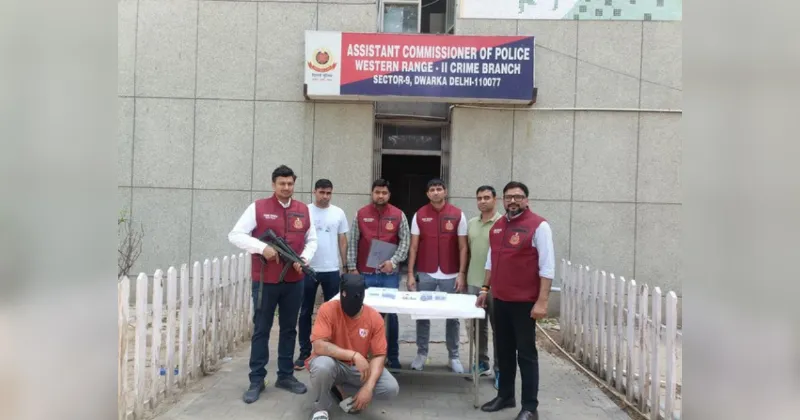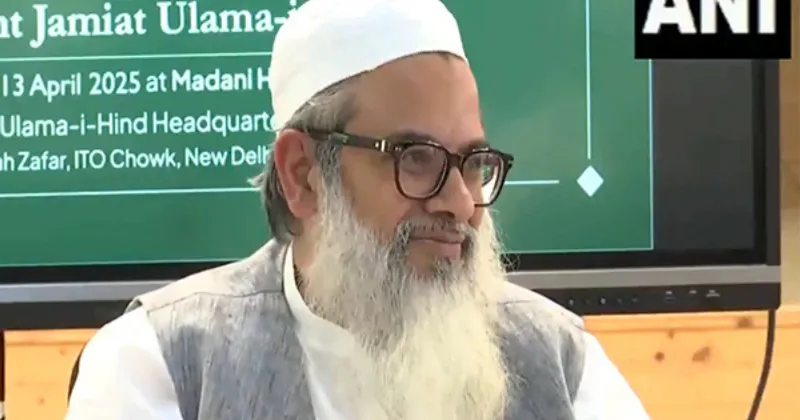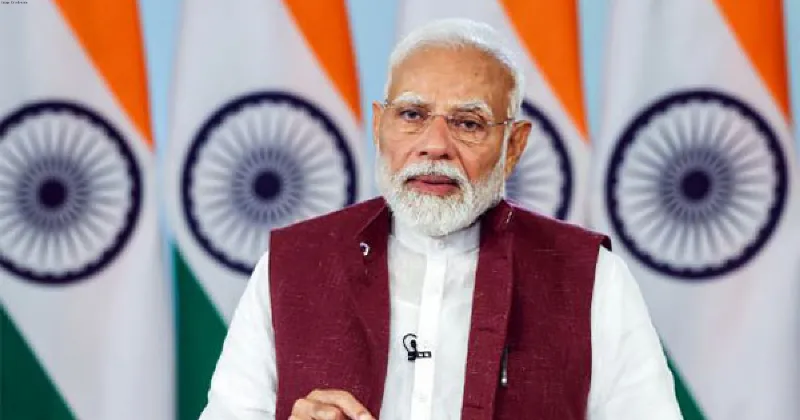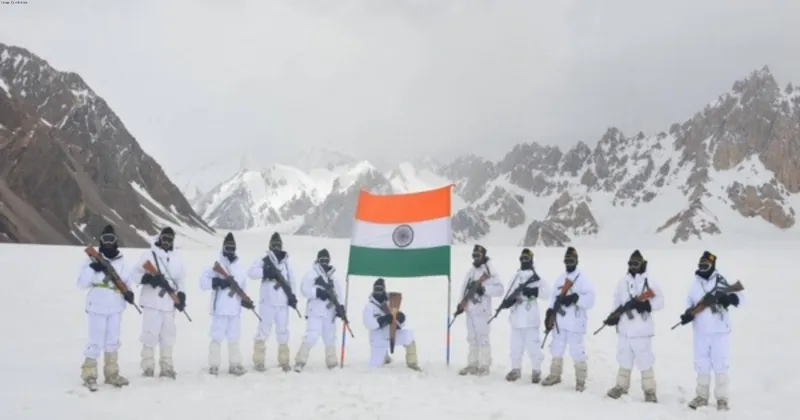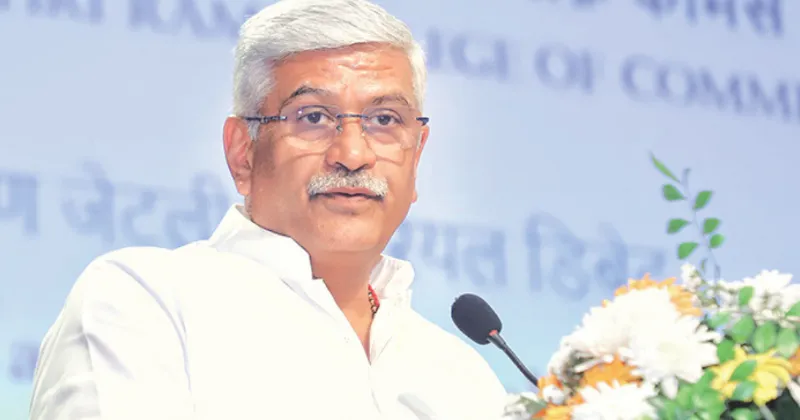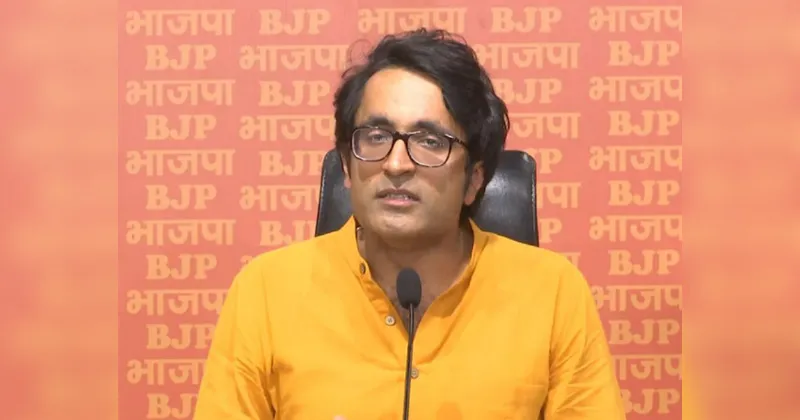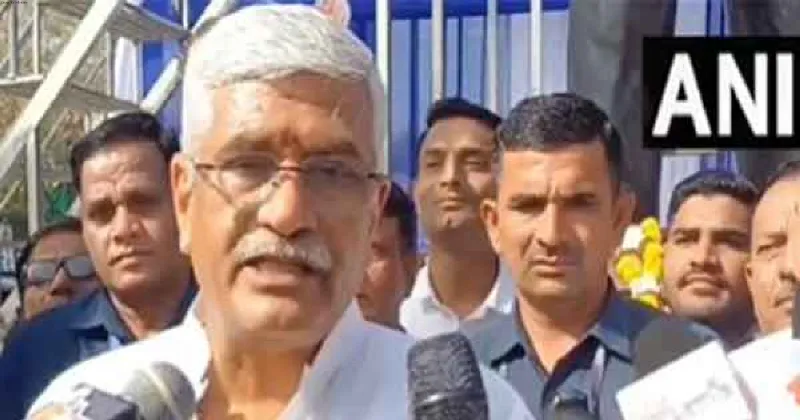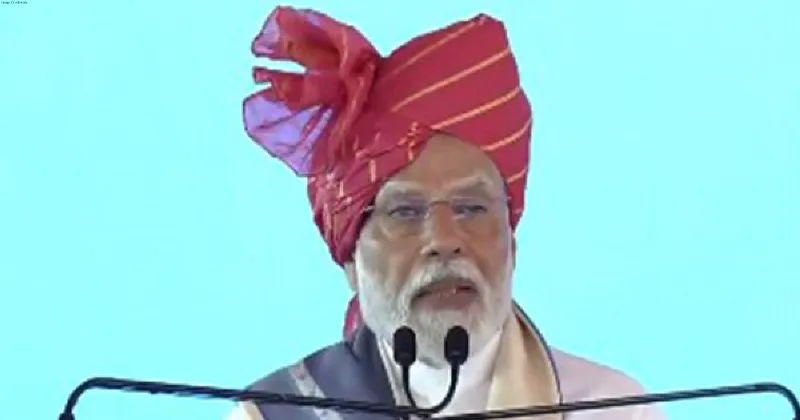New Delhi: Indian Chief of the Naval Staff (CNS) Admiral R Hari Kumar said on Wednesday that owing to the increased presence of multi-national forces in Indo-Pacific and differing interpretations of international laws, there is a fear that the Region's 'Global Commons' can change to 'Contested Seas'.
He also pointed out that the number of violations of the established code of conduct in the South China Sea has grown with the Chinese military bullying the fishermen and clearly poses a threat to the discipline of the sea.
Highlighting the varying interpretations regarding the geographical definition of the Indo-Pacific, Indian Naval chief said, "For Bharat, it extends from the Eastern shores of Africa to the Western shores of America. For the US, it stretches from its Pacific Coastline to the Indian Ocean. But, boundaries are not as important when it comes to defining the Indo-Pacific."
He said, "More than 50 warships of extra-regional forces remain deployed in the Indian Ocean Region for various missions, including for anti-piracy patrol off the Gulf of Aden, and the wider Indo-Pacific also has significant naval presence. Owing to the increased presence of multi-national forces, and differing interpretations of international laws, there is this fear that the Region's 'Global Commons' can change to 'Contested Seas'".
He was speaking at the Seminar where he emphasised upon the 'Geopolitical Impacts Upon Indo-Pacific Maritime Trade and Connectivity, highlighting the multi-faceted linkages between all seven pillars of the Indo-Pacific Oceans Initiative (IPOI), including "Maritime Security" and "Trade Connectivity and Maritime Transport".
While the IPOI provides first-order-specificity to India's maritime policy, guided by the SAGAR Vision, he said, "This edition of the IPRD seeks to identify second-order-specificities that could enable the Indo-Pacific Region to remain safe, stable and secure."
"The fragile security situation in the South China Sea, where the growing number of instances of bullying of smaller navies, including fishermen, by the Chinese militia or its navy, in addition to the almost weekly happening of unsafe monomers or violations of established codes of conduct or confidence-building measures by shipmen aircraft, poses a clear and present danger to the good order and discipline at sea," he said.
While addressing the annual apex-level international conference of the Indian Navy, 'The Indo-Pacific Regional Dialogue 2023', the Navy chief underscored that the Bhartiya Nausena (Indian Navy) has prioritised its efforts to play a more constructive role towards ensuring maritime connectivity across the region and underlined it in three significant points.
Admiral Hari Kumar explained the significance of facing common maritime challenges with a 'participative' and 'inclusive' approach to tackling common maritime challenges.
He said, "The first is to support harnessing of the multitude of competencies that are resident amongst each one of our navies. To this end, we have prioritised creation of a participative and inclusive ecosystem for everyone to participate as an equal partner while tackling common maritime challenges. The recently concluded Goa Maritime Conclave, where 12 navies of our immediate maritime neighbourhood got together to discuss a mitigating framework for achieving our 'Common Maritime Priorities', is a case in point."
He underscored that the building trust within the engaging partner countries and marked that the "Trust cannot be surged or built in a day, a week or even a month".
He stated, "The second aspect is engaging partner nations to develop interoperability and trust. Trust cannot be surged or built in a day, a week or even a month. We understand that building trust requires sustained and continued engagement between friends. Initiatives such as IPRD are aimed at fostering such trust. When we meet, interact, discuss, work and operate together, we not only learn from each other, but also develop trust."
He added, "The final element is focusing on the persistent problems faced by regional nations on a day-to-day basis. Addressing these problems together make the multilateral constructs more output oriented. We want to make a real contribution to a freer, more open and increasingly inclusive global commons by collaborating with like-minded nations."
Admiral Hari also highlighted that the blockage of Suez Canal by MV Ever Green in 2021 and said that the incident reminds of how economic security could be threatened by a small incident.
He said, "Blockage of Suez Canal by MV Ever Green in 2021. Though it was not an outcome of military contestation or conflict, this incident is a stark reminder of how economic security could be threatened by a small incident. The Suez Canal - 193 km long reduces the travel distance between Europe and Asia by nearly 6,500 kms, caters for 12% of global trade, allows transit of one million barrels of oil each day, and contributes to 2% of Egypt's GDP."
He said further, "This incident, which lasted mere six days, resulted in about 450 ships waiting to transit the canal and an estimated economic loss of 60 billion dollars to the global economy. more than individual GDPs of approximately 120 countries."
The Naval Chief also went on to mention the ongoing conflict between Russia and Ukraine and said that the conflict has disrupted grain exports from both war-engaged countries and has sparked a 'global panic'.
The naval chief stated, "That brings me to the second incident-the disruption of Black Sea shipping lanes during the ongoing conflict in Europe. This conflict had disturbed grain exports from Russia and Ukraine, which together provide 30% wheat, 75% sunflower oil and 20% maize of world's supply." This sparked global panic, particularly in North Africa and the Middle East, which rely on grain imports from the Region."
He added, "The World Food Programme stated that food security in the Region has grown increasingly precarious, with nine countries under moderate or high risk of serious hunger. Ladies and Gentlemen, this is what a disruption - leave apart a complete blockade - could cause to the world & world economy."
The South China Sea is a volatile region. A misjudgment or miscalculation on the ground could lead to an uncontrollable situation, given the proximity of rival maritime forces and heightened tensions, Collin Koh, senior fellow at the S Rajaratnam School of International Studies, based at Nanyang Technological University, Singapore, writes in Channel News Asia.
The recent collision between a Chinese coast guard vessel and a Philippine resupply boat near the Second Thomas Shoal on October 22 is just the latest in a series of incidents in the South China Sea. These types of incidents trigger a confrontation between China and the United States. While the risk of a deliberate war appears low, the possibility of accidental conflict should not be underestimated, Channel News Asia article reported.
Moreover, expressing concern about the East and South China Seas, the G7 members at the group's Foreign ministers' meeting strongly opposed China's militarization and other provocative activities, any unilateral attempts to change the status quo by force or coercion.
Further reaffirming the importance of peace and stability across the Taiwan Strait, the G7 members called for the peaceful resolution of cross-Strait issues.
The G7 members called on China to act in accordance with its obligations under the Vienna Convention on Diplomatic Relations and the Vienna Convention on Consular Relations, and not to conduct "interference activities" aimed at undermining the security and safety of their communities, the integrity of their democratic institutions and their economic prosperity, the US State Department said in a statement. (ANI)


.jpg)


